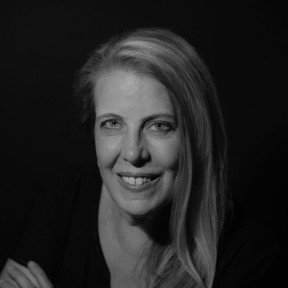Florida second to Texas in in number of books banned in schools
Only Texas has banned books more frequently than Florida’s public schools, according to a national free speech organization that attributed two new pieces of the state’s legislation with an uptick in verboten books.
PEN America counted 566 Florida book bans spread over 21 of the state’s 67 school districts from July 2021 to June 2022. That compares to the 801 bans in effect in 22 Texas school districts. Pennsylvania clocked in at third place with 457 bans in 11 school districts.
The report, issued Monday in recognition of Banned Books Week, raises the alarm from critics that this new momentum for banning books could impair the free exchange of ideas that makes American democracy work.
In the vast majority of cases, the new wave is much more than a parent objecting to a book found in their child’s backpack, officials from PEN America said. It’s coming from organized and coordinated groups such as the national Moms for Liberty and Florida Citizens Alliance.
“Today’s wave of bans represents a coordinated campaign to banish books being waged by sophisticated, ideological and well-resourced advocacy organizations,” said Suzanne Nossel, chief executive officer of PEN America.
“This censorious movement is turning our public schools into political battlegrounds, driving wedges within communities, forcing teachers and librarians from their jobs, and casting a chill over the spirit of open inquiry and intellectual freedom that underpin a flourishing democracy.”
The state Department of Education did not immediately return an inquiry seeking comment on the findings, which specifically cited the passage of the Parental Rights in Education Law (HB 1557) and another on K-12 Education (HB 1467), which calls for an open review of all educational materials.
According to PEN’s study, the banned material most often concerns LGBTQ issues and/or features a protagonist or secondary character who is not White. Out of the 1,648 titles banned, 674, or 41%, addressed LGBTQ themes. And 659, or 41%, had main characters or secondary characters who were not White.
Groups such as the Florida Citizens Alliance (FCA) and even Gov. Ron DeSantis, who had members of FCA on his transition team, say they aim to keep obscene material out of schools and stop “indoctrination.” But Ashley Hope Perez, author of “Out of Darkness,” a young adult novel, said the increasing number of book bans is part of a reaction against featuring characters more diverse than Dick and Jane.
Her novel, about a Mexican American teen who falls in love with a Black teen in the 1930s, was published seven years ago and hadn’t even been challenged until very recently.
“Using concerns about sexual or graphic content is a pretext for this coordinated effort to block young people’s access to books that represent diverse identities and experiences,” she said. “It’s a political strategy.”
The group also noted that the new atmosphere has meant that school districts preemptively purge their collections to avoid challenges. Among them:
• The Broward County School District donated 11 boxes of LGBTQ-themed books to the Stonewall National Museum & Archives.
• Palm Beach County schools also reviewed and removed two books about transgender youth, including one about a Broward teenager who shared her story about gender transition surgeries and therapy.
• Brevard County schools canceled their use of a math learning game and paused all individual classroom libraries because of concerns it might fall on the wrong side of the new laws.
Even more, Jonathan Friedman, director of free expression at PEN America, said “best practices” are not being followed in 96% of the book challenges his organization considered. He noted that many schools pull books as soon as they are challenged. And that poses a serious problem for the continued operation of school libraries.
“If you can file 500 library book challenges, and all those books are immediately pulled from the shelves, how can you possibly run a school library?” he asked rhetorically. “A modicum of due process is a fundamental necessity … to protect school libraries and student rights.”
Anne Geggis is a South Florida journalist who began her career in Vermont and has worked at the Sun-Sentinel, the Daytona Beach News-Journal and the Gainesville Sun covering government issues, health and education. She was a member of the Sun-Sentinel team that won the 2019 Pulitzer Prize for coverage of the Parkland high school shooting. You can reach her on Twitter @AnneBoca or by emailing anne@floridapolitics.com.







